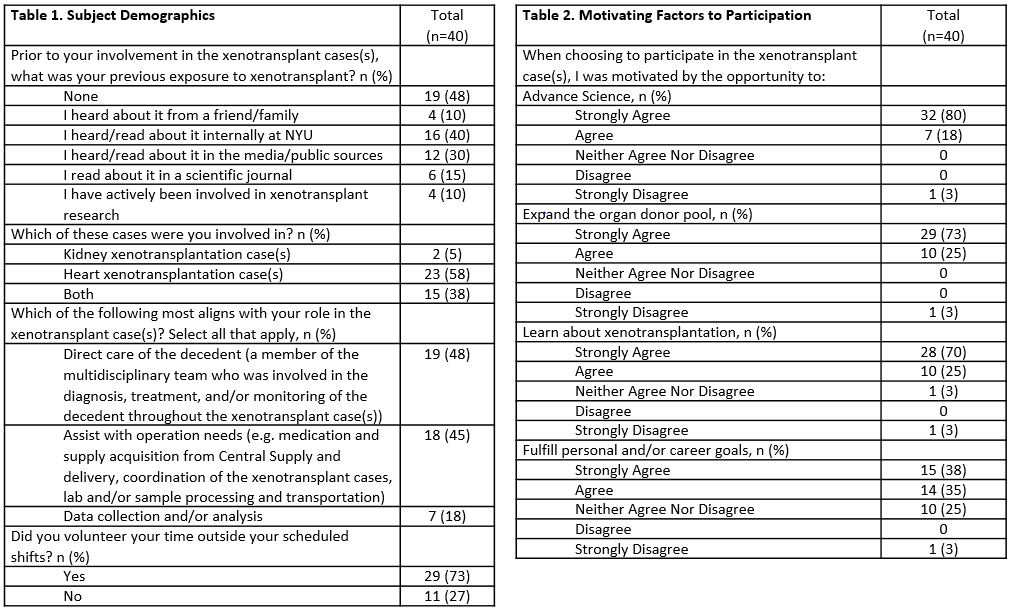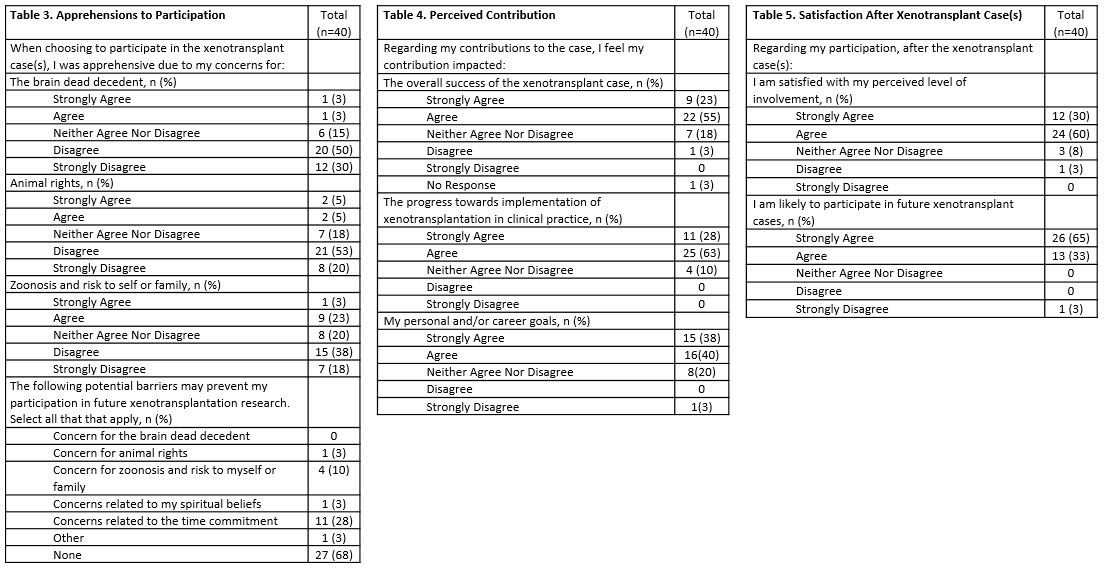Perceptions and potential barriers of personnel involved in xenotransplant research
Karen Khalil1, Rebecca Dieter1, Christopher Hickson1, Megan Gumina1, Jacqueline Kim1, Rachel Rothstein1, Perry Hotchkis1, Nikki Lawson1, Les James1, Nader Moazami1, Robert A Montgomery1, Sapna A Mehta1, Elaina Weldon1, Jeffrey Stern1.
1NYU Langone Transplant Institute, New York, NY, United States
Introduction: In order to facilitate personnel involvement in novel xenotransplantation research, we characterize perceptions and identify barriers of healthcare staff participation in these innovative cases.
Methods: An IRB-approved anonymous Qualtrics survey was distributed to eligible healthcare staff and volunteers involved in any of 4 brain-dead decedent xenotransplant cases at an academic medical center.
Results: 58 participants were eligible for participation. There were 42 (72%) respondents, but 2 were excluded for incomplete surveys; 40 were included for analysis. 48% of respondents had no previous exposure to the field of xenotransplantation prior to these cases, and 70% learned about it either internally or in the media/public sources. 58% were only involved in the heart cases and 38% were involved in both kidney and heart xenotransplant cases. 73% of respondents volunteered their time outside of scheduled shifts. The majority of respondents reported their motivations to participate were to advance science (98%), expand the organ donor pool (98%), learn about xenotransplantation (95%), and fulfill personal and/or career goals (73%). 26% of respondents had apprehensions to participate due to the potential risk of zoonosis, 18% had concerns related to time commitment, and 10% had apprehensions related to animal rights. The majority reported no barriers to participation in future xenotransplantation research (68%). With regard to respondents’ perceived contributions, 78% felt they impacted the overall success of the xenotransplant cases, 91% felt they impacted progress towards implementation of xenotransplantation in clinical practice, and 78% felt participation impacted their personal/career goals. 90% of respondents were satisfied with their level of involvement and 98% are likely to participate in future xenotransplant cases.
Conclusion: This study identified motivations, apprehensions, and potential barriers for providers and staff to participate in xenotransplantation research. Most participants reported a positive experience and expressed interest in future participation in xenotransplant research, which supports broadening personnel involvement in this work.


Supported by Lung Biotechnology, a wholly owned subsidiary of United Therapeutics..
Lectures by Karen Khalil
| When | Session | Talk Title | Room |
|---|---|---|---|
|
Sat-28 11:35 - 12:35 |
Miscellaneous topics 2 | Perceptions and Potential Barriers of Personnel Involved in Xenotransplant Research | Indigo D |
